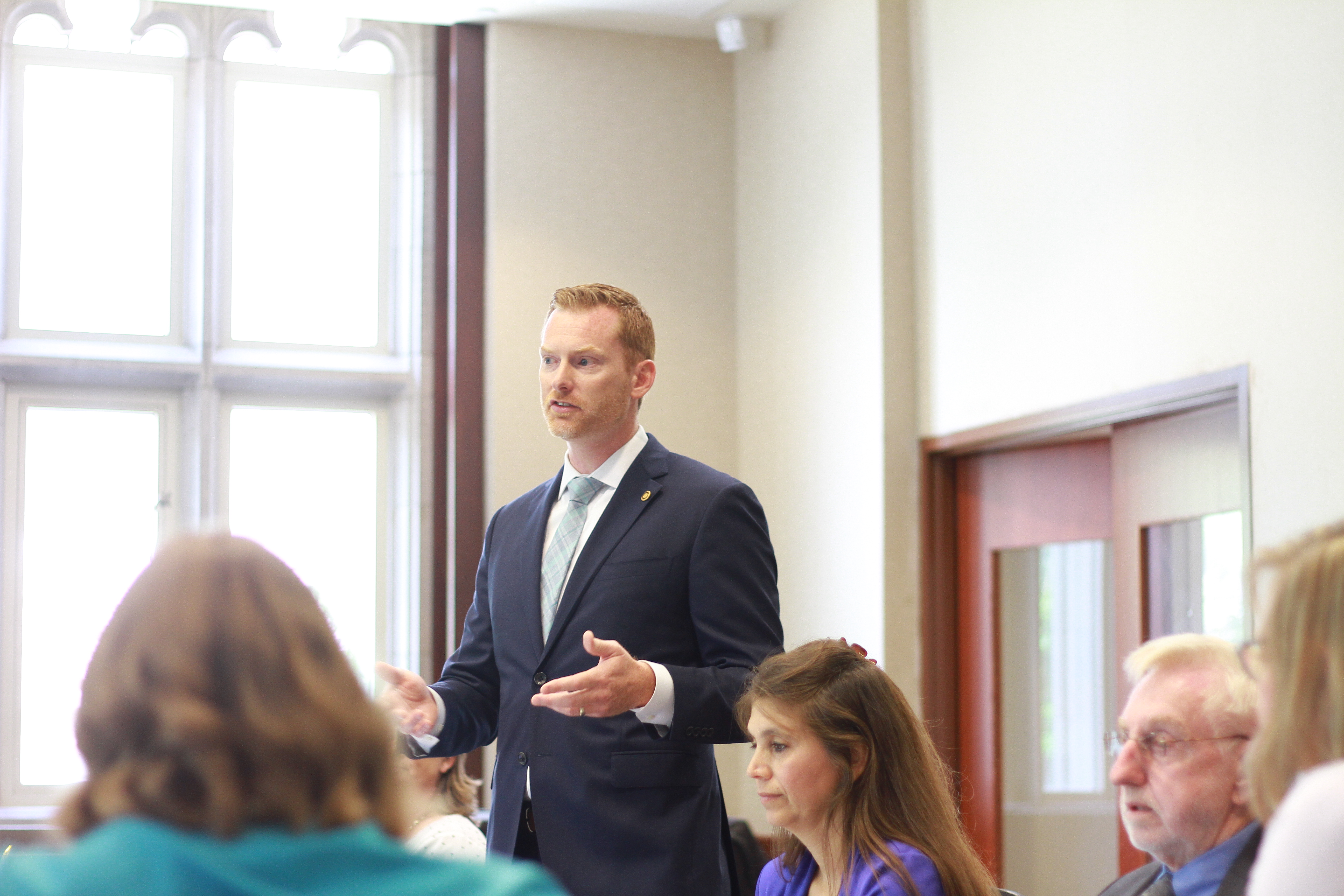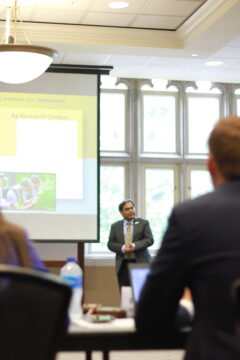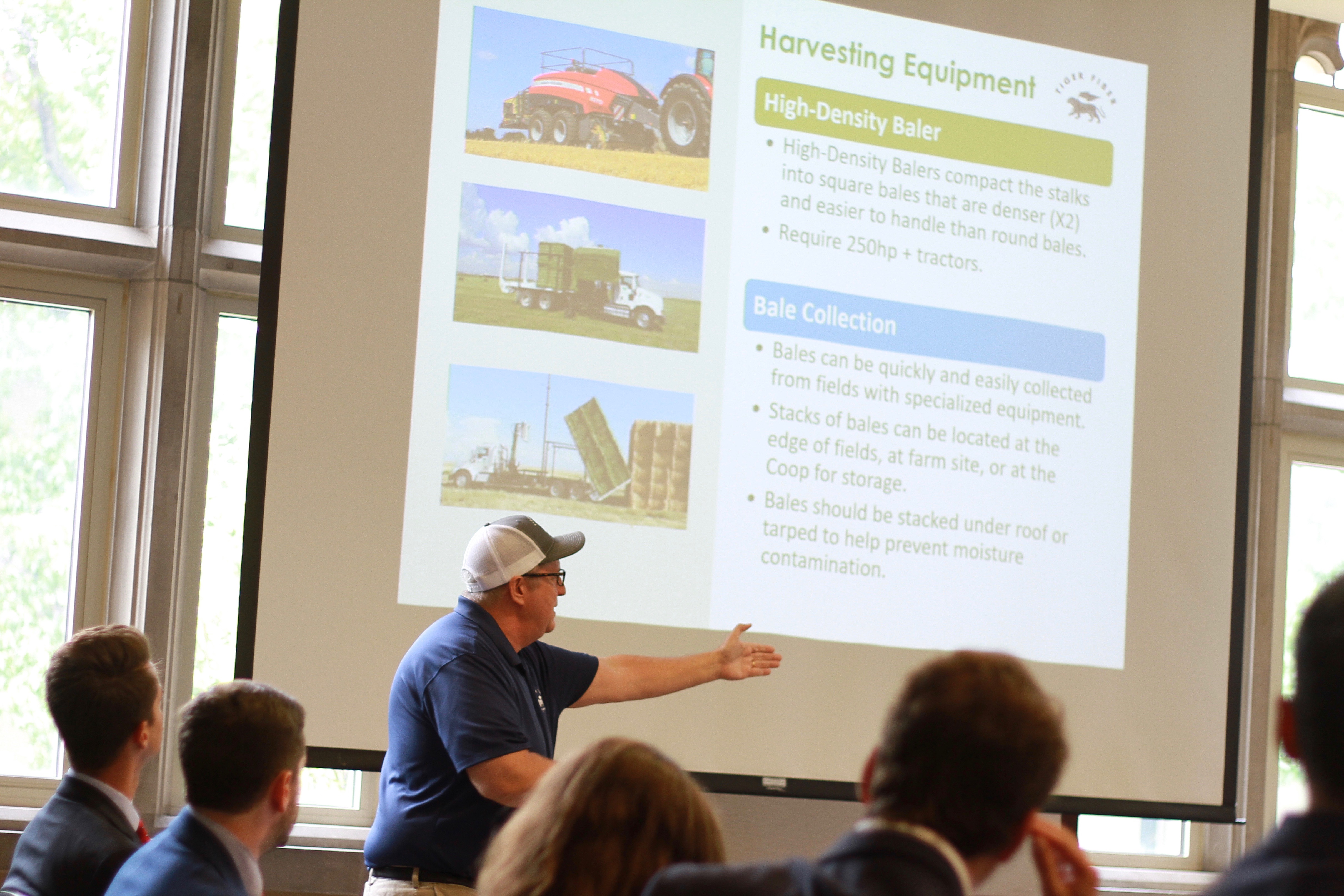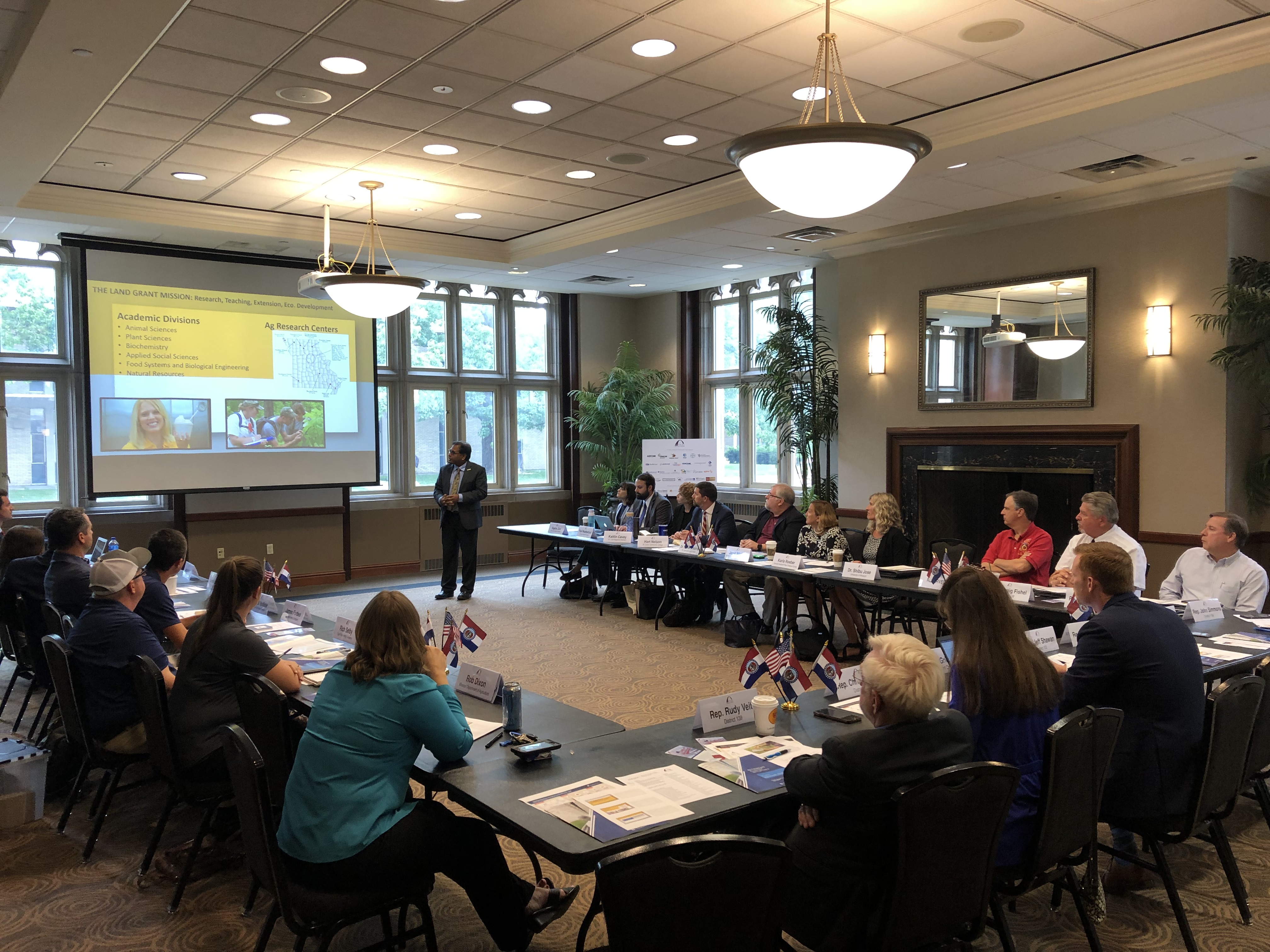COLUMBIA, Mo. — State lawmakers got a crash course on strides industry leaders are making in agriculture technology, often called AgTech, across the Show-Me State.
Speaking to the House Economic Development Committee on Tuesday, AgTech experts provided a glimpse into the emerging industry that is transformative to farming and ranching.

“AgTech is so exciting. … The ability for [Bayer] to track from a satellite which fields have their product: It was mind-blowing, to me, to have that kind of technology going into the food we are developing,” Rep. Derek Grier, committee chair, said in his opening. “AgTech is absolutely one of the brightest spots in Missouri’s economy.”
The purpose of the public hearing held in Columbia, according to the Republican lawmaker, was to learn about the AgTech industry, what is happening in the industry, and how the legislators can help.

Experts noted a hindrance to AgTech development can be the sheer cost of the regulatory process.
“The [regulatory] process is cumbersome and takes hundreds of millions of dollars,” a representative from the University of Missouri (UM) said. He urged lawmakers that “anything the state can do to help public-private partnerships” will help the industry.
AgTech merges two industries — applying technology to the farming field. The multifaceted AgTech industry is wide-ranging, encompassing GPS guidance to plant tracking to drones to vertical farming.
One advancement recently made in AgTech is a variety of oak trees that produce acorns in 3 years, instead of the traditional 20 years. The technology was developed and patented by UM.
The university also help develop hogs that are resistant to porcine reproductive and respiratory syndrome (PRRS). The University of Missouri worked with Kansas State University and Genus to developed the pigs which are resilient to the deadly virus costing pork producers worldwide billions of dollars a year.
Shibu Jose, associate dean of the College of Agriculture, Food & Natural Resources (CAFNR) at the University of Missouri – Columbia use the litter as just one example of the strides being made in agriculture technology.
St. Louis Community College touted its efforts working with agricultural technology companies on research and training students for the specific needs of those companies. Richard Norris, director of the college’s Center for Plant and Life Sciences, noted the AgTech industry needs “to have more students in these programs.”
Tiger Fiber highlighted its ongoing effort to make the Show-Me State a hub for industrial hemp — a crop with many uses in which they are working to create the infrastructure for. With hemp just being reintroduced into Missouri — 2020 will see the first commercial growing season in decades — the entire infrastructure for the crop needs to be developed.
Those at Tiger Fiber are working to help farmers modify current equipment to process hemp. Rich Selby explained that with alterations a seed drill and combine can be used for hemp. The company is working with UM on six research fields of hemp to learn what works for Missouri.
Karla Roeber, vice president of public and government affairs at Danforth Plant Science Center, told the committee a large part of AgTech is growing “more crop per drop” of water.

Yield Labs’ Bonnie Bowen noted there has been a lot of investment in AgTech sectors which encompass “buzzwords.”
“We are working on incentivizing innovation in very specific areas,” Bowen said. “One of the things you see in the technology world is people get very excited about certain sectors — like vertical farming. A lot of money goes into very specific, buzzy things and not necessarily towards real issues that need to get solved.”
She noted one of those issues is manure management. Yield Labs is working in partnership with several companies and agencies — Cargill, the U.S. Environmental Protection Agency, and others — to address the issue and drive investment and capital to those looking for solutions.

Alisha Shurr was a reporter for The Missouri Times and The Missouri Times Magazine. She joined The Missouri Times in January 2018 after working as a copy editor for her hometown newspaper in Southern Oregon. Alisha is a graduate of Kansas State University.
















